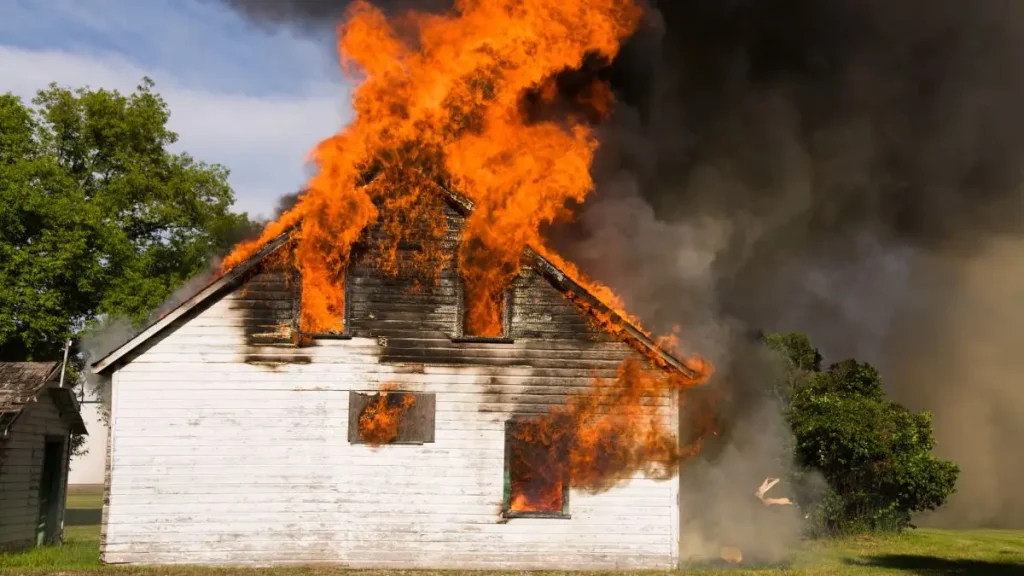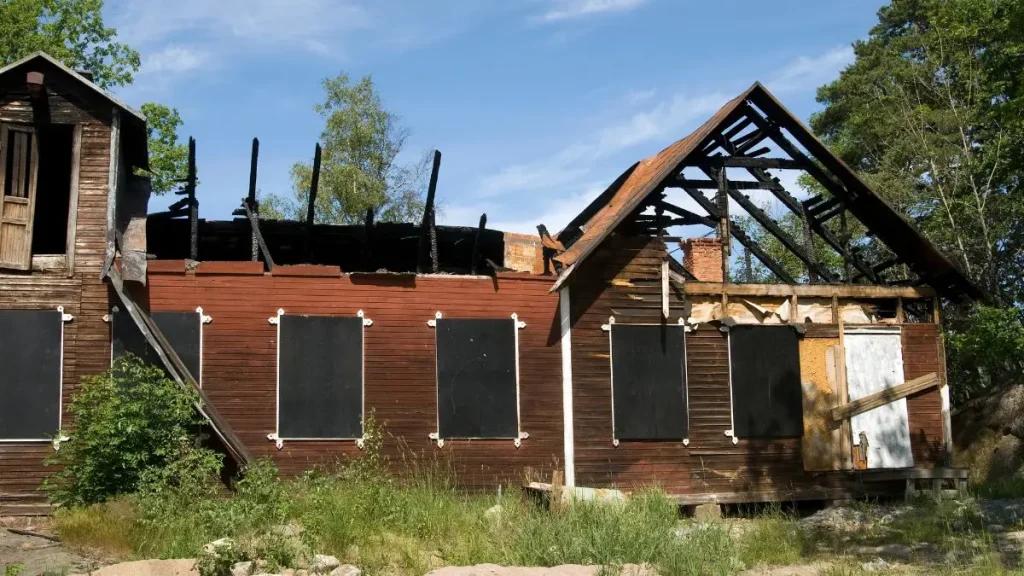Mount Laurel Home Engulfed in Flames With One Person Found Dead in Car
I live in New Jersey, and when I first heard the words “Mount Laurel house fire,” I didn’t expect what came next: a car crash, a massive fire, and someone found dead inside a burning vehicle.
It happened just before 5 PM on June 10, in a quiet neighborhood on Diston Court. Neighbors say they heard loud bangs—some thought it was an electrical explosion. Moments later, flames engulfed the garage and part of the home. A car had reversed violently, slammed into a neighboring garage, and exploded. That fire spread quickly, setting the house ablaze.
Inside that burning car was someone—still unidentified—who didn’t make it out. Meanwhile, the family living in the house managed to escape, including their kids and even their dog. But the chaos and trauma left behind? That’s something this neighborhood won’t forget anytime soon.
It’s not just another local tragedy. It raises real questions—about vehicle safety, fire risk, and how fast things can go wrong in a place that felt totally safe five minutes ago.
Did you hear about this fire when it happened? What’s your take—freak accident or something deeper going on? Let’s talk.
Sequence of Events: Crash → Explosion → Fire
If you’re anything like me, your first thought was: How does a house fire even start from a car?
Here’s what happened—at least, based on what we know from 6ABC. A car suddenly reversed out of a driveway, slammed into the garage of the house next door, and exploded. Just like that. It wasn’t a small fender bender. This was the kind of impact that lit up two garages and sent flames ripping through the home.
People nearby said they heard loud popping sounds—some thought it was electrical. One woman actually saw the car blow up just after it hit the garage. Can you imagine watching that from across the street?
The fire spread fast. Neighbors ran out. Emergency crews rushed in. But the damage had already begun, and someone was trapped in the car while the flames raged.
If you’ve ever backed out of your driveway and felt that tiny jolt of fear—what if something goes wrong?—this story hits hard.
Impacted Individuals: Family, Pets, and Deceased

Let’s talk about the people behind the headlines.
According to NBC Philadelphia, the house belongs to Iliya Rezvine. He was home with his wife and three kids when the fire broke out. Thankfully, they made it out—barefoot, panicked, but safe. Even their dog, Poncho, was rescued from under a table in the house.
But not everyone was so lucky.
The car that exploded? It wasn’t empty. Firefighters found a person inside, already gone. We still don’t know who they were, or why they were in that car. That part of the story feels heavy—and honestly, it’s what keeps lingering with me.
Rezvine said something simple but powerful: “It’s a good feeling to have people you can rely on in a crisis.” I think that’s what we all hope for—that if something goes horribly wrong, someone will be there. The neighbors showed up. The fire crews acted fast. But even then, one life was lost.
Have you ever had a moment where everything just flipped in seconds? That’s what this family lived through.
Investigation Status: What Authorities Are Saying
You’ve probably seen people guessing all over social media. But here’s what the Mount Laurel Police actually said—in their own words, from their official Facebook page.
They’re calling it a “fatal motor vehicle crash involving a structure fire.” Not arson. Not foul play. A crash. That’s how it’s being treated right now.
Police confirmed that the family got out safely, and one person was found dead inside the vehicle. No identity yet. No confirmed cause. And no signs so far that this was intentional.
I get it—it’s frustrating to not have all the answers. But investigations like this take time. Right now, the Fire Marshal and local officials are combing through every detail to figure out what really happened.
If you’re hoping for clear closure, it’s coming—but not just yet. And yeah, I’ll be watching for the updates too.
Missing Angles: What Other Coverage Lacks
Let me level with you—this is the part that bugs me.
Every article I’ve read talks about the crash and the fire. But none of them ask the most obvious question: Why did that car back out like that in the first place? Was it a medical emergency? A mechanical failure? Was it an electric vehicle that overheated or short-circuited?
No one’s touched that.
We also haven’t heard a word about damage estimates or what kind of financial mess the family is now dealing with. Imagine watching your garage, your car, your home—all of it go up in smoke, and then wondering what your insurance covers. These are real, hard questions. But so far? Silence.
And then there’s the deeper truth: this wasn’t just a fire. It was a chain reaction. A small action—intentional or not—led to something massive. That’s the part I think we need to talk about more.
So let’s not just treat this like another scary headline. Let’s dig deeper. Because you and I both know this could’ve happened anywhere.
What do you think happened here—freak accident, mechanical failure, or something more serious? Drop your thoughts below—I’m genuinely curious.
What Causes Garage Fires Like This? Here’s What Most People Miss
When I saw that a car explosion triggered the entire fire, I had questions. You probably do too. How does a parked car just blow up like that?
Here’s the thing most news stories skip: vehicle-related fires in garages are way more common than you’d think. According to the National Fire Protection Association (NFPA), U.S. fire departments respond to nearly 6,600 garage fires every year—and yes, many start with cars.
Now think about how much electrical wiring, battery tech, and fuel sits in one modern car. Mix in hot weather, a faulty battery, or even just a short circuit and it can go bad fast.
And if that was an electric vehicle? That opens up a whole other conversation—thermal runaway, battery punctures, fire suppression delays. But not one report so far has mentioned what kind of car it was.
This isn’t just curiosity. It’s about safety. If it happened there, it can happen anywhere.
When was the last time you checked your garage smoke detector? Or your car battery cables?
I came across even more garage safety tips while scrolling through a local update thread I follow. If you’re into real-time alerts and local incident breakdowns, I’d say joining one or two of those WhatsApp update channels can be surprisingly helpful.
How the Neighborhood Stepped Up?
If there’s any silver lining in all this, it’s how the neighbors responded.
When the car exploded and flames spread, people didn’t freeze. They ran to the house, helped the family get out, and even saved their pets. Think about that for a second—your neighbor’s garage is on fire, you hear screams, and you go toward it.
That kind of response isn’t normal—it’s extraordinary.
Rezvine, the homeowner, told reporters that it was the neighbors who helped pull his wife and kids out. They were barefoot, panicked, but safe. And even later, when crews were still putting out hot spots, folks were checking in, offering clothes, water, anything.
That’s what real community looks like. Not just comments online—but people showing up when it’s chaos.
And maybe you’re asking yourself, “Would I have done the same?” I know I am.
What Happens Now: Property Loss, Insurance, and The Long Haul

Let’s be real—once the fire trucks leave, the hard part starts.
Rezvine’s house is heavily damaged. Two of his Teslas were wrecked in the blaze. And while the family is safe, their home probably isn’t livable right now. So what happens financially?
Here’s what most people don’t realize: not all homeowner’s policies fully cover vehicle fires that originate in or near garages. And depending on how the fire started, there may be legal complexities around liability—especially if the car didn’t belong to the family.
None of the news outlets have explored this yet, but it matters. Because if it were you or me, we’d want to know—Am I covered for this? What are my rights? What if the fire started on someone else’s property and spread to mine?
This is where good insurance advice becomes gold. If you’re a homeowner, it might be time to recheck your policy fine print. I know I’m going to.
Have you ever had to deal with an insurance mess after an emergency like this? If yes, share what helped—or what you wish you knew earlier.
Simple Steps You Can Take to Stay Safer Right Now
After reading about this, I couldn’t stop thinking: What if this happened to me? Or to you?
So I did a bit of digging. If you’re a homeowner—or even just park in a garage—here are a few no-nonsense steps that could make a real difference:
- Install a heat-rated smoke detector in or near your garage (not just the hallway).
- Keep a fire extinguisher rated for electrical and fuel fires within reach.
- Don’t charge electric vehicles overnight unattended, especially older models.
- Regularly check for oil leaks, battery corrosion, and frayed wires in your car.
- Don’t store gasoline, paint thinner, or propane next to vehicles.
- Know your insurance: Ask your provider if you’re covered for vehicle-triggered fires inside your home.
And here’s the big one: have an escape plan. Most people don’t. But if you were trapped by fire near your garage tonight, do you know your fastest way out?
I didn’t. Not until I started writing this.
I recently covered a similar case in Evansville where the fire damage was so intense, even the firefighters needed medical care. The aftershock for the homeowners there wasn’t just physical—it was financial and emotional, too.
Final Thoughts
This wasn’t just another house fire—it was a gut-punch reminder of how fast life can spin out of control. One moment, a regular Tuesday afternoon. The next, an explosion, a lost life, and a family watching their home burn down.
If this story shook you even a little, don’t just scroll past it. Check your alarms. Talk to your family. And make sure you’re ready—for the moments you never see coming.
If you find value in stories like this—real incidents with practical takeaways—consider following for more grounded, no-fluff updates.
Disclaimer: Details in this article are based on currently available reports and official statements as of publishing. The investigation is ongoing, and facts may change as new information emerges. This piece is intended for informational purposes only and does not substitute legal, insurance, or safety advice.


